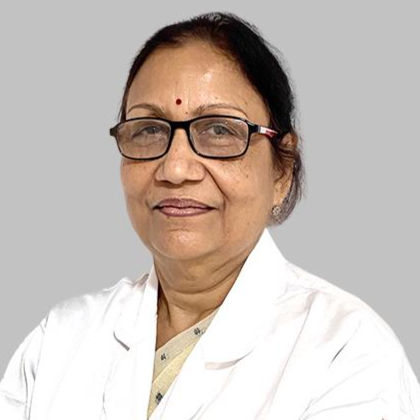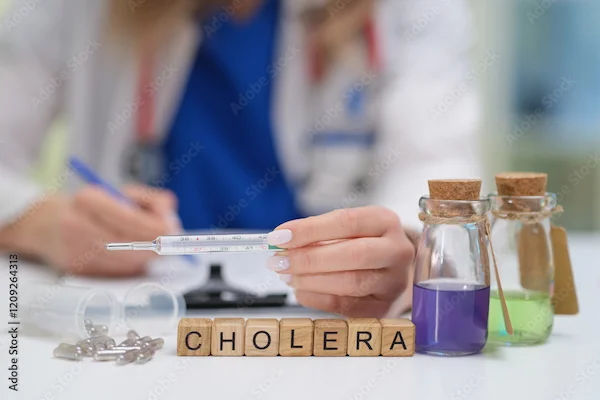Thrombophilia Overview: Symptoms, Types, Tests, Treatment
Learn about thrombophilia, its symptoms, causes, types, tests, and treatments. Get prevention tips and expert advice to manage clot risks effectively.

Written by Dr. J T Hema Pratima
Reviewed by Dr. D Bhanu Prakash MBBS, AFIH, Advanced certificate in critical care medicine, Fellowship in critical care medicine
Last updated on 28th Aug, 2025

Thrombophilia is a condition that increases the risk of developing abnormal blood clots in veins or arteries. While blood clotting is a natural process that prevents excessive bleeding, thrombophilia can cause clots to form when they aren’t needed, leading to serious health complications.
If you or a loved one has been diagnosed with thrombophilia or are experiencing symptoms, this guide will help you understand the condition, its causes, and how to manage it effectively.
What is Thrombophilia?
Thrombophilia refers to a group of disorders that make the blood more prone to clotting. These clots can block blood vessels, leading to conditions like:
- Deep Vein Thrombosis (DVT) – A clot in a deep vein, usually in the legs.
- Pulmonary Embolism (PE) – A clot that travels to the lungs, which can be life-threatening.
- Stroke or Heart Attack – If a clot blocks blood flow to the brain or heart.
While some people inherit thrombophilia, others develop it due to other health conditions or lifestyle factors.
Symptoms of Thrombophilia
Many people with thrombophilia do not show symptoms until a clot forms. When symptoms occur, they depend on where the clot is located:
Deep Vein Thrombosis (DVT) Symptoms
- Swelling, pain, or tenderness in the leg (usually one side)
- Warmth and redness over the affected area
- Heavy ache in the leg
Pulmonary Embolism (PE) Symptoms
- Sudden shortness of breath
- Chest pain (worse with deep breaths)
- Rapid heart rate
- Coughing up blood
Other Clot-Related Symptoms
- Stroke: Sudden weakness, confusion, trouble speaking, or vision problems.
- Heart Attack: Chest pain, sweating, nausea, or shortness of breath.
If you experience any of these symptoms, seek medical help immediately.
Consult a Hematologist for the best advice
Types of Thrombophilia
Thrombophilia can be inherited (genetic) or acquired (developed later in life).
1. Inherited Thrombophilia
- Factor V Leiden Mutation – The most common inherited form.
- Prothrombin Gene Mutation – Increases prothrombin levels, raising clotting risk.
- Protein C or S Deficiency – These proteins help control clotting; their deficiency increases risk.
- Antithrombin Deficiency – A rare but serious condition that disrupts clotting regulation.
2. Acquired Thrombophilia
- Antiphospholipid Syndrome (APS) – An autoimmune disorder where the body attacks proteins that help prevent clots.
- Cancer – Some cancers increase clotting risk.
- Pregnancy & Hormonal Therapy – Estrogen in birth control or HRT can raise clotting risk.
- Obesity, Smoking, or Prolonged Immobility – These lifestyle factors contribute to clot formation.
Tests for Thrombophilia
If you have a family history of blood clots or have had unexplained clots, your doctor may recommend tests:
- Blood Tests: Check for genetic mutations (Factor V Leiden, Prothrombin) or protein deficiencies.
Antiphospholipid Antibody Test: Detects APS. - D-Dimer Test: Measures clot breakdown products (high levels suggest recent clotting).
- Ultrasound or CT Scan: Helps detect existing clots in veins or lungs.
Get Your Health Assessed
If you suspect thrombophilia, consult a hematologist for proper testing. Apollo 24|7 offers convenient lab tests and specialist consultations—book one today if needed.
Treatment and Management
Treatment focuses on preventing dangerous clots and managing risk factors.
1. Medications
Anticoagulants (Blood Thinners):
- Warfarin – Requires regular blood monitoring.
- DOACs (Apixaban, Rivaroxaban) – Newer, easier-to-use options.
- Heparin – Used in emergencies or during pregnancy.
- Aspirin (in some cases) – Helps prevent clots in arteries.
2. Lifestyle Changes
- Stay Active: Avoid sitting for long periods; move every hour.
- Hydrate Well: Dehydration thickens blood.
- Healthy Diet: Reduce processed foods; include omega-3s (fish, flaxseeds).
- Quit Smoking: Smoking increases clotting risk.
- Manage Weight: Obesity raises clot risk.
3. Special Considerations
- Pregnancy: Women with thrombophilia may need blood thinners to prevent complications.
- Surgery/Travel: Extra precautions (compression stockings, blood thinners) may be needed.
When to See a Doctor?
Consult a doctor if:
- You have a family history of blood clots.
- You’ve had unexplained clots before.
- You’re planning pregnancy or surgery.
- You experience symptoms like leg swelling or sudden breathlessness.
Early diagnosis and treatment can prevent life-threatening complications.
Final Thoughts
Thrombophilia is manageable with the right care. If you’re at risk, regular check-ups and a healthy lifestyle can make a big difference.
Need expert advice or testing? Apollo 24|7 provides easy access to hematologists and lab tests; schedule a consultation today for personalized care.
Consult a Hematologist for the best advice
Consult a Hematologist for the best advice
Dr Sumanth R
General Physician
2 Years • MBBS
Bengaluru
PRESTIGE SHANTHINIKETAN - SOCIETY CLINIC, Bengaluru

Dr. Thorana Prakash M
General Physician
2 Years • MBBS
Bengaluru
PRESTIGE SHANTHINIKETAN - SOCIETY CLINIC, Bengaluru

Dr. Ramalinga Reddy
General Physician
5 Years • MBBS MD General medicine
Bengaluru
PRESTIGE SHANTHINIKETAN - SOCIETY CLINIC, Bengaluru

Prof. Dr. Archana Kumar
Paediatric Oncologist
38 Years • MBBS, MD
Lucknow
Apollomedics Super Speciality Hospital, Lucknow

Dr. Purvi Kadakia Kutty
Paediatric Haematologist
10 Years • MD Paediatrics FNB Pediatric Haem. & Onco.
Mumbai
Apollo Hospitals CBD Belapur, Mumbai
Consult a Hematologist for the best advice
Dr Sumanth R
General Physician
2 Years • MBBS
Bengaluru
PRESTIGE SHANTHINIKETAN - SOCIETY CLINIC, Bengaluru

Dr. Thorana Prakash M
General Physician
2 Years • MBBS
Bengaluru
PRESTIGE SHANTHINIKETAN - SOCIETY CLINIC, Bengaluru

Dr. Ramalinga Reddy
General Physician
5 Years • MBBS MD General medicine
Bengaluru
PRESTIGE SHANTHINIKETAN - SOCIETY CLINIC, Bengaluru

Prof. Dr. Archana Kumar
Paediatric Oncologist
38 Years • MBBS, MD
Lucknow
Apollomedics Super Speciality Hospital, Lucknow

Dr. Purvi Kadakia Kutty
Paediatric Haematologist
10 Years • MD Paediatrics FNB Pediatric Haem. & Onco.
Mumbai
Apollo Hospitals CBD Belapur, Mumbai
Get Your Health Assessed
₹1250(₹3125)60% off




